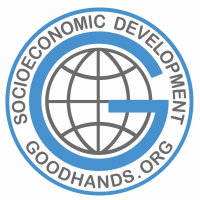Career & Learning: Building Skills for Work & Lifelong Learning
This section helps you grow through practical learning and career development. Whether you're applying for a job, planning a career path, or building new skills, you'll find clear guidance and useful explanations. Topics include resumes, job interviews, learning goals, and navigating workplace culture. Everything is written in plain, easy-to-understand language. You don’t need experience or formal education—just curiosity and motivation. Helpful term explanations are also included to support your journey.
Understanding Career Terms
Applicant Tracking System (ATS)
A digital tool used by employers to scan, rank, and manage job applications. Many companies use ATS to filter out resumes before a recruiter even sees them. Optimizing your resume for ATS by using relevant keywords and structured formatting can significantly increase your chances of passing the initial screening.
Career Pivot
A major shift in one’s career path, often involving a change in industry, job function, or skill set. People pivot careers to pursue new interests, respond to market demand, or improve work-life balance.
Cover Letter
A one-page document that accompanies a resume, highlighting an applicant’s qualifications, motivation, and enthusiasm for a specific role. A strong cover letter personalizes your application and demonstrates why you are a perfect fit for the position.
Elevator Pitch
A concise, compelling self-introduction lasting about 30 to 60 seconds, typically used in networking or interviews. It summarizes your background, strengths, and career goals in a way that grabs attention and sparks interest.
Freelancing
Working independently on a contract or project basis rather than being permanently employed by one organization. Freelancers often provide specialized services, such as writing, graphic design, programming, or consulting.
Gig Economy
A labor market characterized by short-term, flexible jobs, often facilitated by digital platforms. Examples include ride-sharing drivers, online tutors, and freelance designers who take on temporary assignments rather than full-time employment.
Hard Skills
Job-specific technical skills and knowledge required for certain professions, such as coding, data analysis, or accounting. Hard skills are often measurable and acquired through training or experience.
Internship
A temporary position that provides hands-on work experience, often targeted at students or early-career professionals. Internships help individuals build practical skills, expand their professional network, and improve employability.
Job Shadowing
A learning opportunity where an individual observes a professional in their daily work to gain insight into a specific role, industry, or career path. Job shadowing is valuable for students, career changers, and those exploring new opportunities.
Leadership Skills
The ability to inspire, guide, and motivate a team toward achieving common goals. Strong leadership skills include communication, decision-making, and conflict resolution.
Mentorship
A professional relationship in which an experienced individual guides, supports, and advises someone with less experience. Mentorships can help mentees develop new skills, gain industry insights, and expand career opportunities.
Networking
The process of building professional relationships to exchange information, gain insights, and uncover job opportunities. Effective networking can take place at industry events, conferences, online platforms like LinkedIn, or within personal and professional circles.
Negotiation Skills
The ability to discuss and reach mutually beneficial agreements in professional settings, such as salary negotiations, business deals, or conflict resolution.
Onboarding
The structured process of introducing and integrating a new employee into an organization. This includes training, role orientation, and cultural adaptation to ensure a smooth transition into the workplace.
Outsourcing
The practice of hiring external companies or freelancers to perform tasks, often to reduce costs or focus on core business functions.
Personal Branding
The practice of marketing oneself as a professional by showcasing strengths, skills, and unique value propositions. Building a strong personal brand, both online and offline, can open doors to job opportunities and career advancement.
Portfolio
A collection of work samples, projects, and accomplishments that showcase an individual’s expertise and skills. Portfolios are particularly useful in creative, technical, and freelance industries, providing tangible proof of capabilities.
Professional Development
Ongoing learning through courses, certifications, seminars, and industry events aimed at enhancing skills and knowledge to advance one’s career.
Professionalism
Conducting oneself with responsibility, integrity, and respect in the workplace. It includes maintaining good communication, ethical behavior, and reliability.
Project Management
The ability to plan, execute, and oversee projects to achieve specific goals within a defined timeline and budget. Project managers use tools and methodologies to track progress and manage teams effectively.
Remote Work
The ability to perform job duties from any location outside of a traditional office setting, often enabled by digital communication tools. Remote work has become increasingly common, offering flexibility and access to global job markets.
Resume Tailoring
The practice of customizing a resume for a specific job by highlighting relevant skills, experiences, and keywords to improve hiring chances.
Soft Skills
Non-technical, interpersonal abilities such as communication, teamwork, adaptability, emotional intelligence, and problem-solving that are crucial for workplace success.
Time Management
The skill of effectively prioritizing tasks and managing time to maximize productivity and meet deadlines.
Transferable Skills
Abilities and competencies that are applicable across various jobs and industries, such as leadership, project management, and critical thinking. These skills make it easier to transition between roles or sectors.
Upskilling
The process of learning new competencies or enhancing existing ones to stay competitive in a rapidly changing job market. Upskilling can involve taking courses, earning certifications, or gaining hands-on experience.
Work Ethic
A set of values centered around dedication, discipline, and responsibility in one’s professional life. Strong work ethic is often associated with reliability and productivity.
Work-Life Balance
The ability to manage professional responsibilities while maintaining a healthy personal life. Achieving work-life balance is key to preventing burnout and ensuring long-term career satisfaction.
Zero-Based Thinking
A decision-making approach that encourages evaluating situations as if starting from scratch to determine the best course of action.

